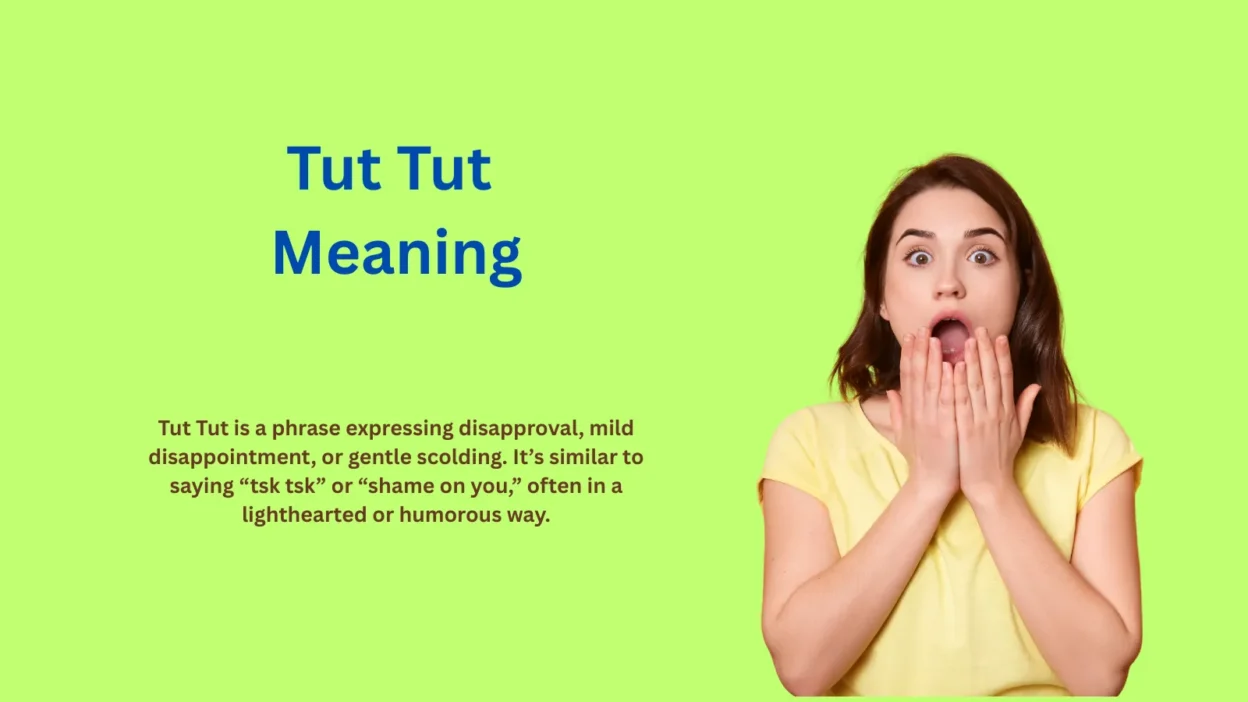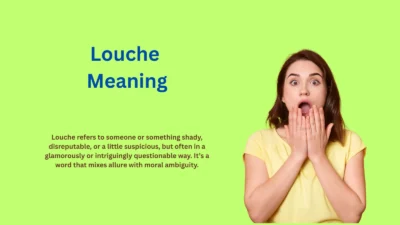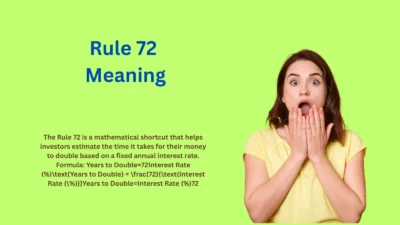From casual conversations to online messaging, Tut Tut is a phrase you might hear often. But what does it actually mean? Tut Tut is an expression used to show disapproval, mild annoyance, or sympathy. It’s often playful, sarcastic, or gently corrective, depending on the context.
People might use it like this:
- “Tut tut, you really shouldn’t have done that.”
- “Oh, tut tut… I’m sorry to hear that!”
In this article, we’ll explain what Tut Tut means, explore its origins, show how it’s used in modern communication, and provide examples to illustrate its various uses.
What Does “Tut Tut” Mean?
Tut Tut is a phrase expressing disapproval, mild disappointment, or gentle scolding. It’s similar to saying “tsk tsk” or “shame on you,” often in a lighthearted or humorous way.
Example Sentences:
- “Tut tut, you forgot your homework again.”
- “Tut tut… maybe next time you’ll be on time.”
Key Points to Remember:
- Indicates disapproval or mild criticism.
- Can also express sympathy or concern.
- Often used in informal speech, texting, or social media.
- Tone, context, and delivery determine whether it’s playful or serious.
Background & History
The phrase Tut Tut originates from British English, where it has been used for centuries as a sound of disapproval.
- The “tut” sound mimics a click of the tongue, signaling dissatisfaction.
- Historically, it was used in polite conversation to express minor annoyance without harsh words.
Over time, Tut Tut spread globally through literature, films, and online communication. Today, it is recognized worldwide, often in texting, memes, or social media captions.
Usage in Various Contexts
In Casual Conversation
- “Tut tut, you really should have called first.”
- “Tut tut, that’s not how it’s done!”
In Texting & Messaging
- “Tut tut 😬, forgot to send the report?”
- “Tut tut… maybe try again tomorrow.”
In Social Media
- Often used humorously with emojis:
- “Tut tut 😅 #Oops”
- “Tut tut… lesson learned 😂”
In Literature or Drama
- Characters often say “Tut tut” to show mild disapproval or societal etiquette:
- “Tut tut! Young man, behave yourself!”
Common Misconceptions & Clarifications
- “Tut Tut is rude.”
Not necessarily — it’s generally mild and polite. - “Only older people say it.”
No — it’s used in memes, texting, and casual conversation by all ages. - “It’s negative all the time.”
Context matters; it can be sympathetic or playful, not just critical.
Example Dialogue:
- Sam: “I spilled coffee on the report.”
- Alex: “Tut tut… happens to the best of us!”
Similar Terms & Alternatives
| Term | Meaning | Example |
|---|---|---|
| Tsk Tsk | Mild disapproval | “Tsk tsk… you forgot your keys.” |
| Oh dear | Concern or mild sympathy | “Oh dear, that’s unfortunate.” |
| Shame on you | Gentle criticism or scolding | “Shame on you for missing the deadline.” |
| Pfft | Dismissive or playful annoyance | “Pfft… really?” |
| Uh-oh | Mild warning or acknowledgement of a mistake | “Uh-oh, you broke it!” |
While related phrases exist, Tut Tut uniquely combines gentle disapproval with a slightly playful tone.
How to Respond to This Term
Your response depends on context:
Casual/Playful:
- “Haha, I know, my bad!”
- “Tut tut indeed 😅”
Sarcastic/Funny:
- “Tut tut… as if I care 😂”
- “Tut tut… guilty as charged!”
Sympathetic:
- “Tut tut, that’s really unfortunate.”
- “I know, tut tut… hope it gets better!”
Regional or Cultural Differences
- UK & Commonwealth countries: Strong traditional use in conversation and media.
- US & Canada: Less common in speech but often appears in writing or memes.
- Online & Global: Frequently used humorously in texting, GIFs, and social media captions.
Despite differences, it universally conveys gentle disapproval or concern.
Comparison with Similar Expressions
| Expression | Focus | Tut Tut Difference |
|---|---|---|
| Tsk Tsk | Mild disapproval | Similar sound; Tut Tut can be more playful |
| Oh Dear | Sympathy or concern | Tut Tut can scold lightly, not just sympathize |
| Shame On You | Direct criticism | Tut Tut is softer and less harsh |
| Uh-Oh | Mistake acknowledgment | Tut Tut expresses mild disappointment, not surprise |
Hidden or Offensive Meanings
Tut Tut is generally safe and polite.
- Rarely, if said sarcastically or with an eye-roll, it may imply mockery or condescension.
- Emojis and tone clarify intent in texting or social media.
Suitability for Professional Communication
- Informal or creative workplaces: Acceptable in internal chats or casual emails.
- Formal/business writing: Avoid using it; opt for professional alternatives like “unfortunately” or “that’s disappointing.”
Example:
Instead of “Tut tut, the report is late,” say “Unfortunately, the report was submitted after the deadline.”
FAQs
- What does Tut Tut mean?
An expression of mild disapproval, annoyance, or sympathy. - Is Tut Tut slang or formal?
Informal, mostly used in casual conversation, literature, or social media. - Where did Tut Tut originate?
British English, historically used as a polite sign of disapproval. - Can Tut Tut be humorous?
Yes — often used sarcastically or playfully online. - Is Tut Tut offensive?
Rarely; context and tone determine its effect.
Conclusion
The Tut Tut meaning goes beyond just a phrase — it’s a gentle way to show disapproval, sympathy, or playful scolding. From conversations and literature to memes and social media captions, Tut Tut conveys emotion without being harsh or aggressive.
Next time you want to lightly criticize or show concern, remember: a simple “Tut Tut” can say it all with style and politeness.





